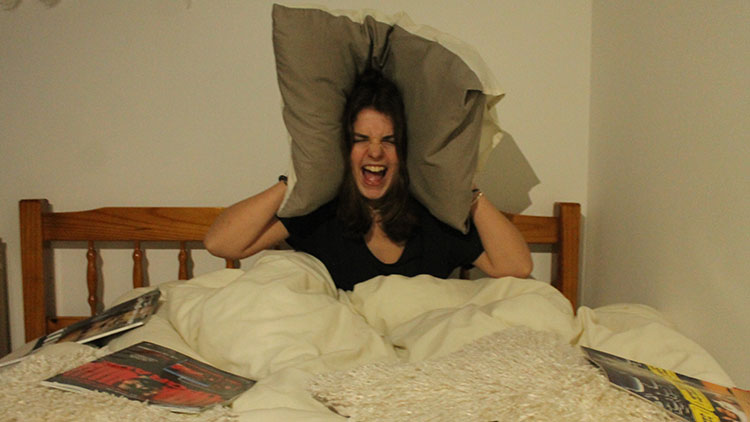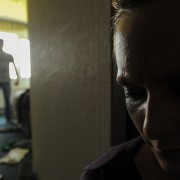
The effects of sleep deprivation can impact both your mind and body Pic: Ilaria Grasso Macola
Thirty per cent of Londoners are not getting enough sleep. But where can you get help in our boroughs? Sam Hancock and Ilaria Grasso Macola find out
Data published by NHS Digital suggests that, among ELL’s boroughs, sustained sleep loss is continuing to worsen: in Hackney alone, diagnoses of sleep disorders have increased from 140 in 2013, to 430 in 2018. Lewisham comes in second, with more than a 50 percent increase in diagnoses in the same time frame. Both Tower Hamlets and Croydon have also experienced an increase of around 20 percent.
While doctors recommend between eight and nine hours of sleep each night, The Sleep Council reported in December that a third of Londoners only get between six and seven. Although the difference of an hour or two doesn’t seem dramatic, John Groeger, a professor of psychology at Nottingham Trent University, said sustained sleep loss can impact your body and mind severely. When hours of sleep are consistently missed, he said it can lead to “sleep debt” – when your body is constantly working to try and catch up on sleep, and to pay back your brain for the overtime it has to do to keep up with your overtired physical state. The UK-based insurance company, Aviva, recently published figures after surveying 2,000 Londoners; they showed that 30 percent of the city’s residents suffer from sleep deprivation, with nearly one in four adults nationwide ranking “sleeping better” as their top health priority, second only to losing weight.
The causes of sleep deprivation vary according to age, gender and lifestyle. It is important to understand the reasons sleep deprivation can start in order to appreciate the serious effects it can have on day-to-day life. Some people deprive themselves of sleep deliberately, whether it’s to get ahead in work, achieve better grades in school or ensure they never miss a night out with friends – these “intentional sleep deprivers” and are mostly made up of teenagers, young adults and young professionals. Other people unintentionally miss out on sleep, due to a whole range of factors, such as work, family matters and demanding jobs – these “unintentional sleep deprivers” tend to be older. A common cause between all age groups is depression, and as the legal age for prescription of antidepressants continues to travel further down the margin, it’s important to remember that it is both a cause, and symptom, of persistent sleep deprivation.
Groeger also said the effects of sleep loss can be “severe on all of us”, no matter our age. “Our ability to rationally realise emotions, like controlling anger amongst other things, is completely compromised – and at a rapid rate. And we’re not even venturing into the fact it can lead on to clinical depression and psychosis,” he said.
It’s no secret that sleep deprivation can lead to low moods, feeling tired and even depression in some cases, but in the long run it can have serious physical consequences. According to the NHS, sleep deprivation can lead to heart disease, diabetes and obesity. In 2017, a paper published in the European Journal of Preventive Cardiology linked insomnia to an increased risk of heart attacks and strokes.
Sleep deprivation can be associated with an increased heart rate and blood pressure. Getting less than five hours of sleep can lead to type-2 diabetes, as your body produces more levels of insulin: the hormone that controls the blood’s sugar level. Unstable hormones can also have other effects: in adult men, they can lead to a lower production of testosterone and therefore reduced level of libido. In children, they can stunt growth.
So, where can you go to start improving your sleeping habits?
There are services across ELL’s boroughs which help people to tackle their sleep-related issues. In Hackney, Homerton University Hospital is running a series of free insomnia workshops through the independent service, Talk Changes, later this year. The workshops help to tackle sleep disorders though Cognitive Behavioural Therapy (CBT) and draw connections between people’s thoughts, behaviours, physical symptoms and emotions. Hear Us is a service run for, and by, people who are suffering from a range of mental illnesses. The team, who are based in Croydon, deal with cases where sleep deprivation either causes or exasperates problems with mental health.
In Lewisham and Tower Hamlets, the best places to get help for any sleep-related issues use therapy-focused approaches. In the southern borough, the South London and Maudsley (SLaM) NHS Foundation is geared towards improving access to psychological therapies, which some people choose to use when attempting to improve their night-time routines. In Tower Hamlets, if you’re between the ages of 16-25, the Tower Hamlets Early Detection Service (THEDS) is the best place to go.
Follow our Sleepless London series this week to find out more about sleep loss and the impact it can have. #SleeplessLondon
If you think you may be suffering from sleep deprivation, call your GP and ask for an appointment. You can read more about its symptoms here.




